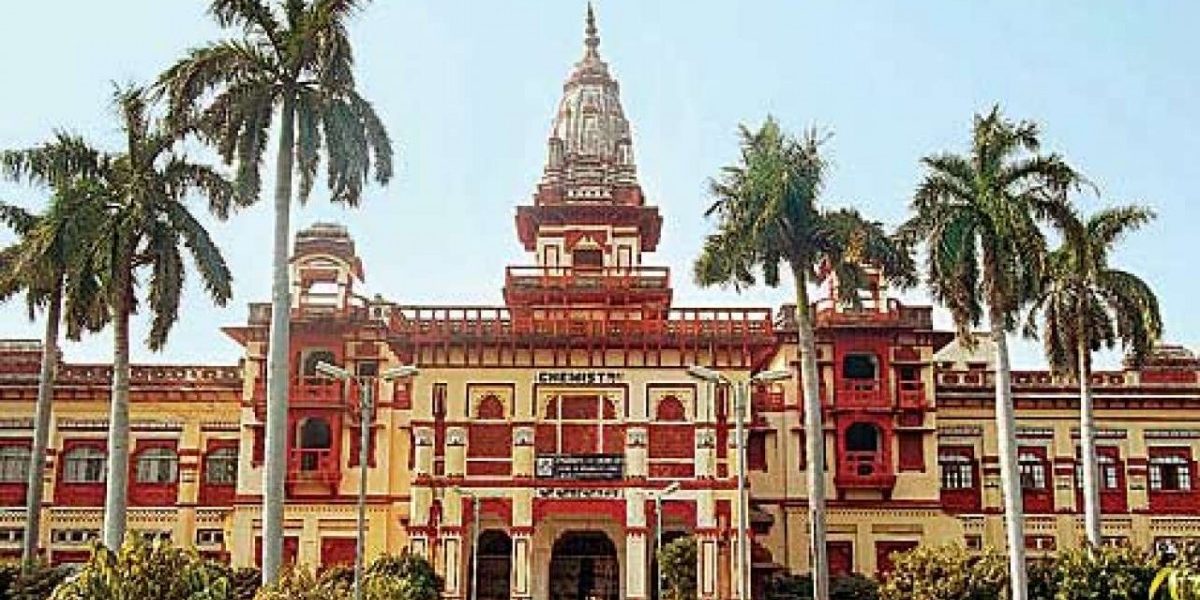The recent incidents of violence and brutality against protesting students of Jamia Milia Islamia and Aligarh Muslim University have reverberated across the country. Like most students, I am pained. At the same time, I’ve also been engulfed by a sense of guilt – the guilt of having left Jamia to study at Banaras Hindu University.
In 2017, I took admission in a masters programme at Jamia Milia Islamia but left it within a week to join BHU. I did it for personal reasons as well as my love for the city of Varanasi.
But today, looking at the nature of Jamia’s resistance against the sinister Citizenship Amendment Act, I feel I should have just stayed there. The visuals of the women-led movement are so powerful that I proudly tell everyone that I once studied at Jamia.
At the same time I’m deeply anguished by the reaction of BHU, my alma mater now, over the viciousness faced by students at fellow universities. Yes, the students of BHU did organise a solidarity protest. But without discrediting their intent, I felt it was done just for the sake of being done.
Also read: My College Was Burning – and I Couldn’t Do Anything
Why was there was no mention of CAA or the National Register of Citizens in their protest, isn’t it something that concerns us all equally?
Someone once told me that the nature of protests in a university depicts its true health. Looking at BHU, I fear it is dead. I was there when it was dying, when they had employed stooges in the guise of VCs who allowed the police to enter hostels and beat up students so that their protest against incidents of eve-teasing come to an end.
In this process, they killed the university itself.
That day, I knew it wouldn’t stop there, that they would come after its spirit again.
I hoped to be proven wrong.
Language, theirs and ours
As I’m writing this, there’s been an imposition of Sections 144 and 149 in and around the BHU campus and an advisory has been issued to students to not participate in any kind of protest against NRC and CAA.
I can’t help but wonder where these advisories were when members of the ABVP protested against the appointment of Dr. Feroz Khan in the Sanskrit Vidya Dharam Vigyan at BHU. The nature of the protest and its eventual outcome also reflects everything that is wrong with the university. It oozes brahminical supremacy while claiming ownership of an ancient language. Protestors marked the walls of the university with the message that Sanskrit is a Hindu language and if you’re a Muslim, you should try teach something else – Urdu perhaps.
Mission accomplished
As I was scrolling through status posts on WhatsApp which were mostly related to CAA and student protests – some in favour and some against – one post caught my attention as it read ‘my first published article’. It was from a junior at BHU, a politically aware smart person, so I curiously opened the link.
It was written for a known media outlet and the title read Why the citizenship amendment law is needed. The first paragraph of the article claimed that Muhammad Ali Jinnah created Pakistan out of Hindu hatred.
Also read: How to Wash Clothes: A Manual
I was stunned as I read further. I felt as though my understanding of history and polity is of a completely different universe. By the time I finished reading the article, I realised that there’s a fresh crop of graduates ready with their own understanding of history, with their own assessment of the constitution. It suddenly hit me that maybe this was the real reason for which those stooges had been placed, that an ancient language was claimed and a university was killed.
Now that you have killed it, I want you to bury it. Do with it what you have done with other cultural centres, perhaps even change its name.
To that end, I have a suggestion: name it Hindutva University, and remove Banaras from the name as the city has always been a symbol of multiculturalism – and the university as it stands today is anything but.
Divyam Dwivedi is presently studying at Centre for Policy Studies, IIT Bombay and did his masters in conflict studies from Banares Hindu University. He is a sucker for graphic novels and recently found out that George Orwell was born in Bihar.
Featured image: Banaras Hindu University/PTI

